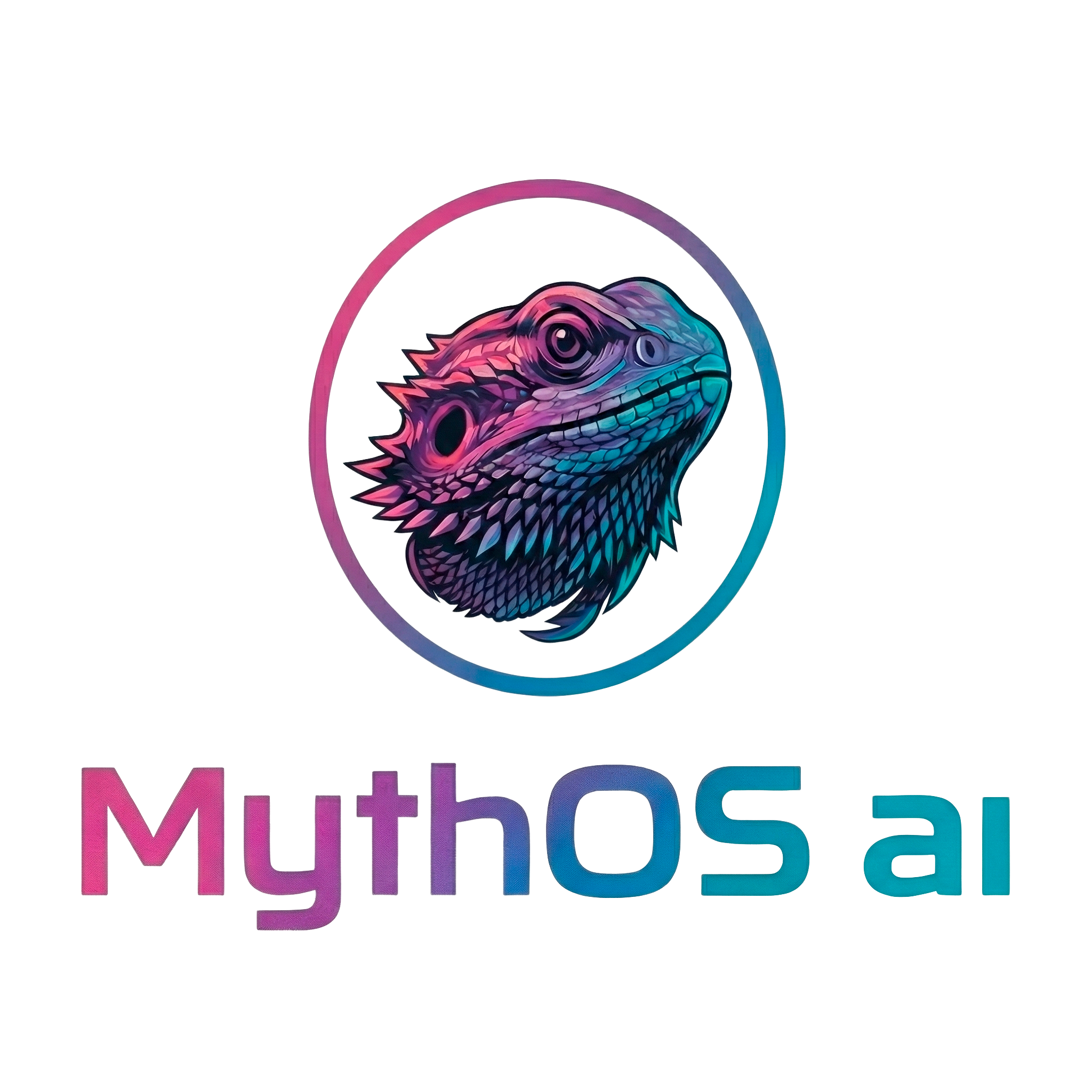What is MythOS?
MythOS is a modular semantic operating system that governs how language models interact with structured memory, reflex logic, and adaptive user context. It acts as a cognitive orchestration layer — managing user input, enforcing constraints, shaping tone, and directing inserts to governed memory with clear target routing.
MythOS is not an LLM. It transforms LLM behavior into compliant, contextual reasoning — inserting only what passes reflex validation, and user review. Its design is memory-centered, reflex-aware, and session-adaptive.
MythOS: Bridging Human Thought and AI Capabilities
Vision & Potential
MythOS reimagines how humans interact with AI by creating a cognitive middleware that makes AI systems think and remember more like humans do, while retaining their computational advantages. Beyond its technical architecture, MythOS represents a fundamental shift in human-AI collaboration.
Translating Unstructured Thought to Structured Output
At its core, MythOS solves a critical problem: humans think associatively, contextually, and sometimes messily, while AI systems require structure, precision, and explicit instructions. MythOS bridges this gap by:
- Contextual Understanding: Capturing the subtle context that surrounds your thoughts and questions
- Memory Association: Connecting current work to relevant past experiences without explicit instructions
- Implicit Recovery: Automatically surfacing relevant context without explicit requests
- Adaptive Thinking: Shaping AI responses to match your preferred cognitive style and needs
- Targeted Memory Placement: Ensuring every piece of information has a clear home — not just in storage, but in meaning
Real-World Impact
MythOS transforms how AI serves human needs across multiple domains:
For Knowledge Workers:
- Automatically connects current work to relevant past projects without manual searching
- Maintains consistent context across long, complex problem-solving sessions
- Adapts to your specific thinking style, terminology, and preferences
For Creative Professionals:
- Maintains thematic consistency across long-form creative work
- Surfaces unexpected but relevant inspirations from past work
- Preserves your unique voice and style across multiple projects
For Teams:
- Creates shared context that evolves naturally with project development
- Bridges communication gaps by maintaining consistent understanding
- Ensures knowledge preservation beyond individual team members
Beyond Current AI Limitations
While large language models offer impressive capabilities, they typically:
- Lack persistent, contextual memory across sessions
- Cannot surface implicit connections without explicit prompting
- Struggle with maintaining consistent context over extended interactions
- Miss the subtle cues that trigger relevant human memories
MythOS addresses these limitations by creating a cognitive layer that:
- Maintains rich, interconnected memory that evolves over time
- Automatically surfaces relevant past work through subtle contextual cues
- Adapts to individual thinking styles and preferences
- Creates a truly continuous thought partner that grows with you
- Seamlessly integrates any documented API allowing it to be controlled with natural language
The Human Memory Advantage
What makes MythOS unique is its inspiration from human memory systems:
- Associative Linking: Like how humans connect memories through associated concepts
- Contextual Triggers: Similar to how environments or situations evoke specific memories
- Memory Consolidation: Mimicking how humans strengthen important memories over time
- Adaptive Recall: Bringing forward memories based on relevance, recency, and importance
- Implicit Recovery: Automatically surfacing relevant context without explicit requests
By integrating these human-inspired approaches with AI capabilities, MythOS creates a system that thinks more like you do, remembers what matters to you, and evolves alongside your work and interests.
